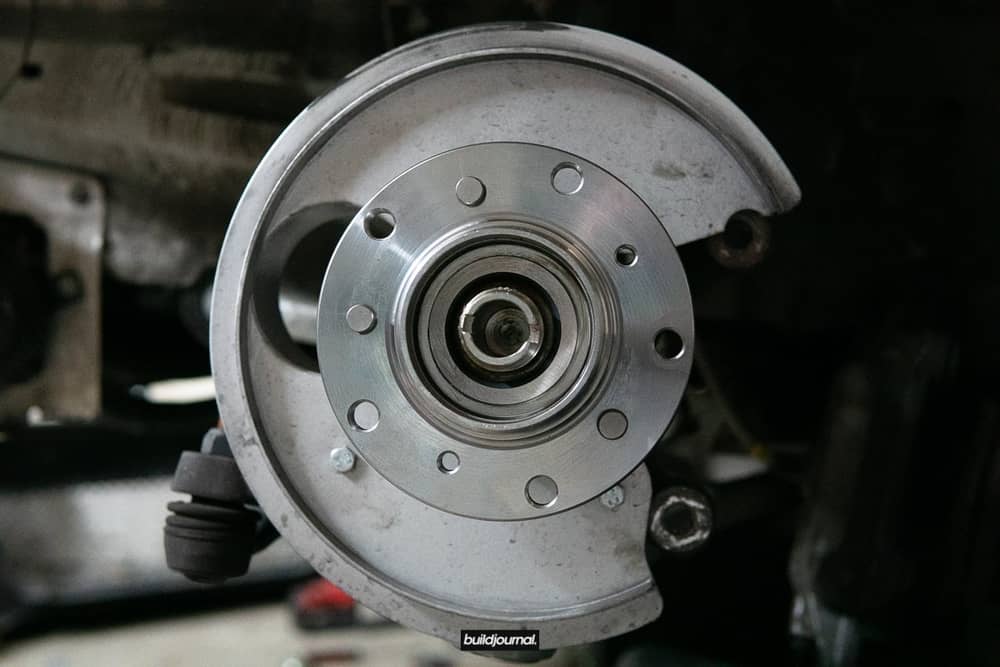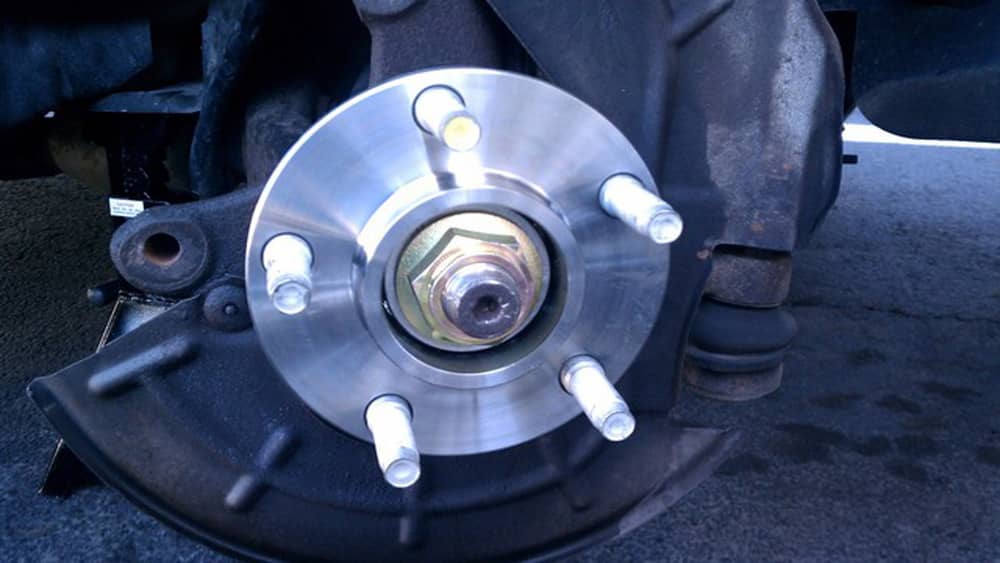Have you ever heard wheel bearing noise goes away when turning left? If this is the case, you are not alone. Wheel bearing noise is a prevalent problem in vehicles and can appear in a variety of ways. One odd occurrence is that the noise disappears or considerably lowers when turning left.
Wheel bearings are critical components that allow your wheels to spin freely. They can make a variety of noises when they wear out or become damaged. The noise may temporarily disappear when turning left due to weight redistribution on the wheels during the turn. This shift in weight distribution might temporarily relieve pressure on the defective bearing, reducing or eliminating noise.
While the absence of noise during left turns may appear to be a relief, it is critical not to overlook the underlying issue. If left neglected, wheel bearing problems can lead to more serious damage. In this article, we will look at the most prevalent causes of this problem and how to solve it.
Reasons For Wheel Bearing Noise Goes Away When Turning Left?

Upon hearing wheel bearing noise that inexplicably disappears upon turning left, it could suggest a number of underlying issues. Understanding these causes can help you successfully diagnose and solve the problem. Here are a few possibilities:
Uneven Wear
Wheel bearings might wear unevenly over time owing to causes such as faulty installation, alignment concerns, or suspension problems. Because of the uneven wear, the noise may be more evident when going straight and reduce or disappear when turning left. The shift in weight distribution during the turn can momentarily relieve strain on the worn section of the bearing.
Load Shift
When you make a left turn, the weight of the car transfers to the right side, putting less strain on the left wheel bearing. This reduced load might temporarily minimize noise caused by a damaged or worn bearing. However, the noise may recur or grow more apparent when traveling straight or turning right.
Faulty Seal
Seals on wheel bearings help to keep dirt, moisture, and pollutants out. If the seal becomes torn or worn, debris and water can enter, increasing friction and noise. When turning left, the centrifugal force may push the debris away from the bearing, temporarily lowering the noise.
Alignment Issues
Incorrect wheel alignment can cause uneven tire wear, altering weight distribution on the wheel bearings. When going straight, if the alignment is causing excessive pressure on one side, the noise may be more noticeable. When the load changes away from the affected side, noise also diminishes during left turns.
Temperature Changes
The heat generated during operation causes temperature changes in wheel bearings. The noise level is affected by the expansion and contraction of the bearing components. The change in load and weight distribution during a left turn can also impact the temperature distribution in the bearing. It may change the noise characteristics.
While the noise may momentarily diminish during left turns, these underlying issues must be addressed. If you hear wheel bearing noise, you should visit a trained mechanic to maintain your vehicle’s correct operation and lifetime.
How To Fix Wheel Bearing Noise That Goes Away When Turning Left?

If you are experiencing wheel bearing noise that disappears upon turning left, it is critical that you fix the problem as soon as possible. This assures your vehicle’s safety and performance. Here are some steps to take to resolve the issue:
Confirm The Diagnosis
It’s critical to pinpoint the cause of the noise as a defective wheel bearing. Consult a certified mechanic who can examine your vehicle and confirm the diagnosis.
Replace The Wheel Bearing
If the wheel bearing is at blame, it will very certainly need to be changed. This is a difficult task that necessitates the use of specific instruments and knowledge. It is advised that the replacement be performed by a skilled mechanic or technician to ensure correct installation.
Replace Other Components If Necessary
While dealing with the wheel bearing problem, it’s a good idea to check the wheel hub, seals, and axle. If any of these components exhibit symptoms of damage or wear, they should also be replaced.
Ensure Proper Installation
It is critical to follow the manufacturer’s recommendations and utilize high-quality parts during the replacement process. Adequate bearing lubrication and torque settings are critical for maximum performance and lifetime.
Check Wheel Alignment
Following the replacement of the wheel bearings, have the wheel alignment verified by a specialist. Improper alignment can cause uneven wear and premature bearing failure. Correcting alignment concerns will aid in the longevity of the replacement bearing.
Regular Maintenance
Maintain your wheels on a regular basis to avoid future problems. This involves examining the bearings on a regular basis and changing them as recommended by the manufacturer. Furthermore, maintain the wheel hub area clean and clear of debris.
Read this post: Do Running Boards Affect Gas Mileage?
Why Does My Car Make Noise When I Turn Right But Not Left?
There are a few possible explanations for why your car produces noise when turning right but not when turning left:
Cv Joint Issues
A malfunctioning Constant Velocity (CV) joint is a common source of noise during turns, especially when it occurs on only one side. The CV joints distribute power from the transmission to the wheels while also providing for smooth rotation during turns. When turning right, if the CV joint on the right side of the car is worn or broken, it may make a noise owing to increased load on that joint.
Wheel Bearing Problems
Wheel bearings provide for smooth wheel rotation and support the weight of the vehicle. When turning right, a worn, broken, or inadequately greased wheel bearing on the right side can cause noise. The extra stress on the right side during right turns may aggravate the problem, making the noise more noticeable.
Suspension Components
Noise during turns can be caused by faulty suspension components such as worn-out ball joints, tie rods, or control arm bushings. When the weight transfers to the right side during right turns, the right-side suspension components can make noise if they are worn or damaged.
Brake Issues
Noise during turns might be caused by malfunctioning braking components such as worn brake pads or deformed rotors. If the noise is only heard when turning right, it could suggest a problem with the right brake assembly.
Tire-Related Issues
Noise during turns might be caused by uneven tire wear or tire tread separation on the right side. This can be due to alignment issues, tire imbalance, or insufficient tire pressure.
It is recommended that you have your car inspected by a certified mechanic to establish the exact origin of the noise. They can examine the afflicted components thoroughly, do the appropriate tests, and precisely diagnose the problem. Addressing the underlying issue as soon as possible will assist ensure the safety, performance, and longevity of your vehicle.
Final Thoughts
When the wheel bearing noise ceases when turning left, it suggests that there may be a problem. Addressing the issue as soon as possible is critical for vehicle safety and performance. Consult a certified mechanic to precisely diagnose the problem and conduct any repairs or replacements that are required. Regular maintenance and inspections are critical for avoiding future problems and extending the life of the wheel bearings. Remember that temporary noise reduction during left turns is not a lasting solution, thus addressing the underlying problem is critical for maximum performance.
